Our Little Lives: Shakespeare and Me at Almeida Theatre
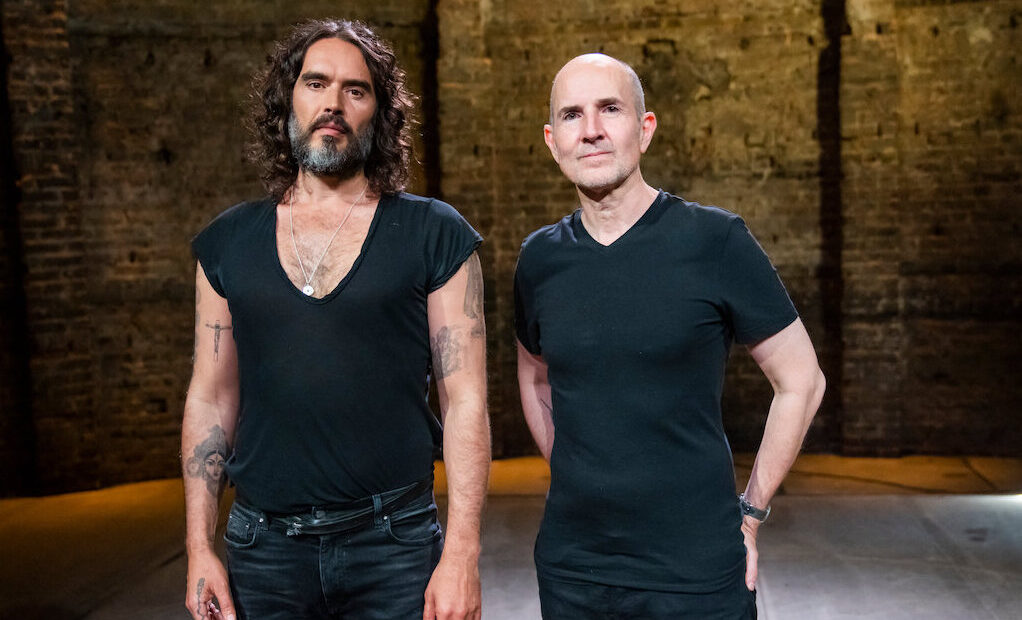
“Now is tha winta of our discontent”.
Historians say Russell Brand’s Essex accent is closer to how Shakespeare would have sounded back in his day than the received pronunciation viewers typically hear in theatres today. The comedian argues that language offers a means to control ideas: control the accent in which the poet’s work is spoken and control who has access to its truth. It can also offer liberation, an escape from or expansion of reality
That’s how Brand escaped what he describes as the unbearable banality of Grays. “You’re not going to talk your way out of this one, Russell,” he quotes an unspecified adult voice from the past. “Oh yes I bloody am,” he laughs, “I’ll talk my way right out!”
Using the linguistic style of the inimitable Bard, Our Little Lives presents an accessible new take on Shakespeare, reflecting on universal themes such as meaning; ritual; power; ownership of language and spirituality through a deeply personal lens.
“The only way that I can access truth,” Brand claims, “is by talking as honestly and as openly as I can manage, and sometimes more honestly and openly than I can manage: as openly and honestly as Shakespeare can manage.”
Unlike the actor-writer’s previous one-man shows, this piece is a collaboration with esteemed Ian Rickson. For anyone unfamiliar with his calibre, the last one-person show he directed was Harold Pinter’s performance of Beckett’s Krapp’s Last Tape in 2006. The theatre director brings a narrative structure that is cohesive and utterly captivating, weaving significant moments into the nine monologues and sonnets, each of which represents a different chapter of the comedian’s life. The narrative is, at times, so seamless that if you miss the dimming lights, you might mistake Richard II’s Act Five, Scene Five for Brand’s own thoughts.
However, the empathy is occasionally overdone, with the performer taking on a pseudo-messianic role perhaps befitting someone whose last show was titled The Messiah Complex. “I know you because I am you. I’m 3am you,” he consoles, looking particularly Christ-like. Later he contradicts himself in-sentence with an opaque: “We are all different but we are all fundamentally the same.” Okay, where does that leave us?
This vagueness encapsulates much of the artist’s work. In this performance, he seeks to mobilise change by opening Shakespeare’s language to the masses, throwing it from its high castle back into the rabble of everyday folk, to be intellectually consumed and fuel humanity’s forays into new realms of thought and purpose. But in typical Brandian fashion, the “real social change” he seeks to incite is hazy by design: “I don’t fucking know what you need!” He cries, “but I know you need something”.
Like other progressive writers of today – think George Monbiot – Brand has a tendency to gambol dizzily into ramblings where each problem is interminably interconnected, to the point where solving one feels futile. Isn’t it enough simply to honour Shakespeare, to open these texts to new audiences through symbiosis with your fascinating lived experience?
Our Little Lives’ strength is its vulnerability. When Rickson tells the comedian he can’t do Caliban, The Tempest’s monster, because Brand himself is too beautiful, the performer replies: “But that isn’t how I feel.” His openness about his suffering and his unwavering sincerity give new meaning to the texts and credence to his delivery. It also balances a very funny, touching show.
Oh yes, and there’s a dog!
Daniel McLeod
Photo: Tristram Kenton
Our Little Lives: Shakespeare and Me will be available to stream via LIVENow from 14th July until 23rd July 2021, for further information or to book visit here.

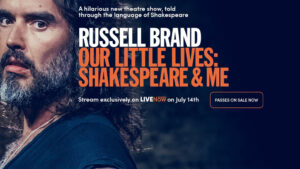
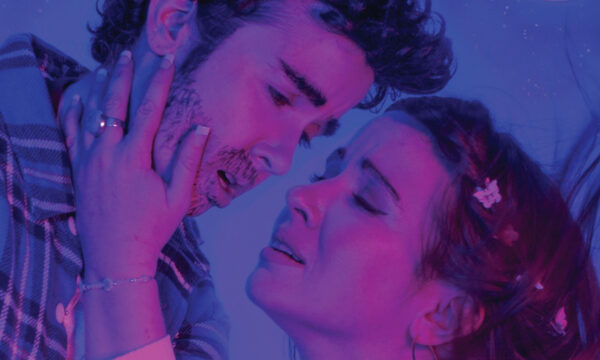
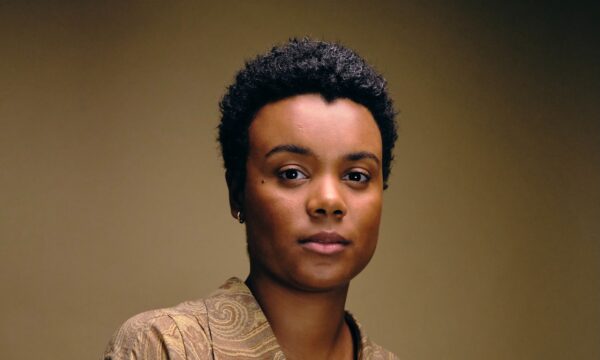

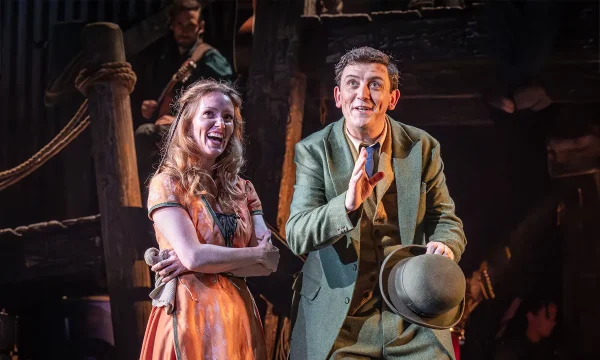
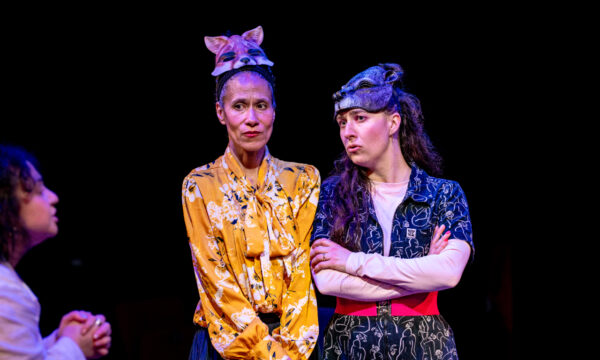
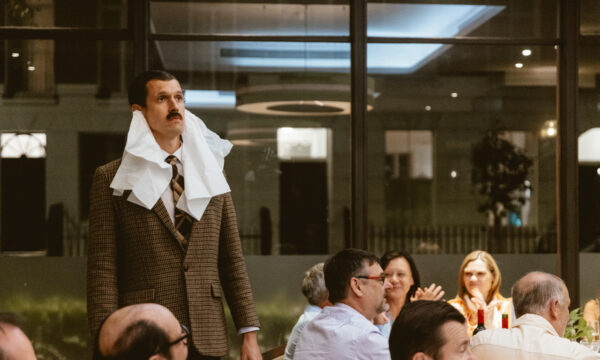
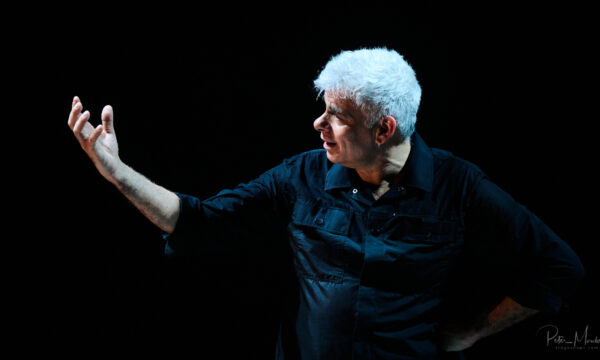
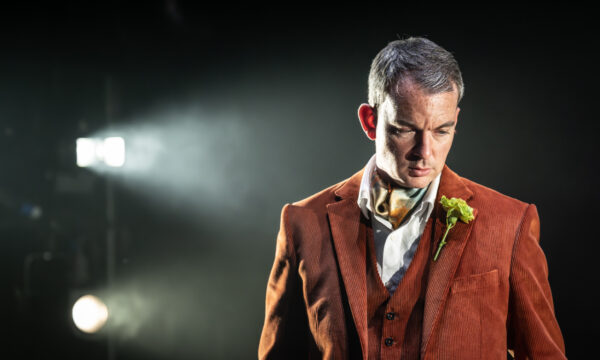
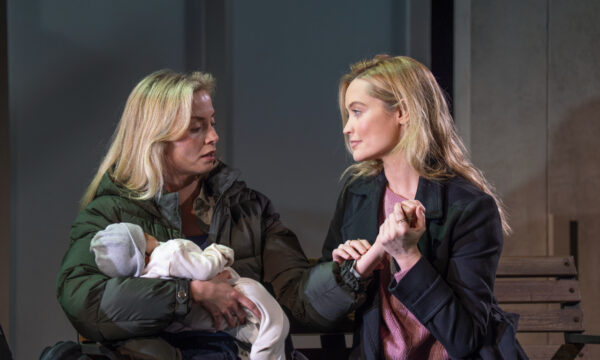














Facebook
Twitter
Instagram
YouTube
RSS